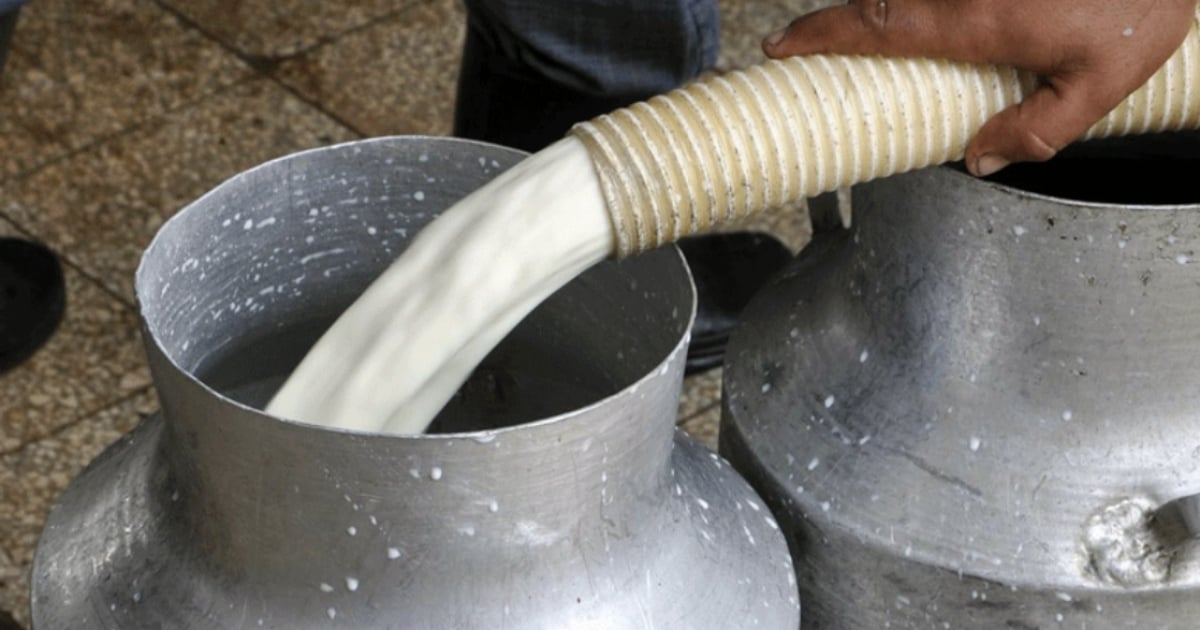
In a new episode that highlights the precariousness of the supply system in Cuba, the authorities in Cienfuegos have announced that milk intended for children aged 1 to 7 will be distributed without undergoing any industrial processing.
A breakdown in the water supply line serving the Dairy Complex has necessitated the distribution of raw milk, according to the official Facebook page "Las Cosas de Fernanda."
Milk, not having undergone basic pasteurization processes, needs to be boiled immediately to prevent the proliferation of parasites and other health risks.
"It has no industrial process whatsoever, which is why it needs to be boiled promptly. This is to prevent the transmission of parasites and to avoid spoilage due to the hours of milking, collection, and transportation," noted the profile adhering to the regime.
Families must take on this responsibility while also confronting the daily challenges of fuel and electricity shortages, which are essential for ensuring food security for children.
This situation once again highlights the structural deficiencies of the regime in ensuring the safe and sustainable provision of basic goods.
While the authorities insist on temporary solutions, citizens grapple with the risks and consequences of a system that is unable to effectively meet the essential needs of the population.
Recently, the Cuban Minister of Food Industry (MINAL), Alberto López Díaz, acknowledged that the government is unable to provide the expected amounts of milk needed to meet the regulated family basket due to unmet production targets in the country.
Without specifying which factors contribute to the breach, the minister referred to the energy crisis as one of the main problems affecting the collection of milk from farmers, explaining that power outages impact the production chain and, at times, cause food spoilage.
"Milk often turns sour because there is no power in the thermos, because it didn't arrive on time when it was dispatched, or because the physical fuel was delayed. And when the raw materials reach the industry, there is also a blackout in the industry, which affects the production cycle and, consequently, impacts the quality of the product," López Díaz explained.
Meanwhile, citizens are grappling with the exorbitant prices of the informal market, which far exceed the already inadequate wages.
Filed under: